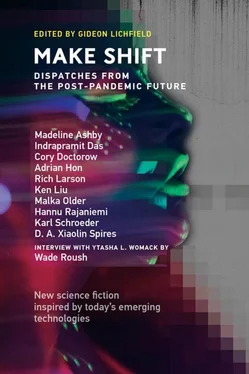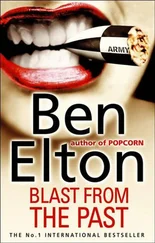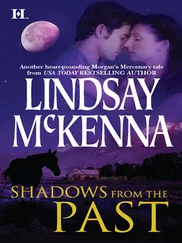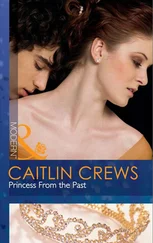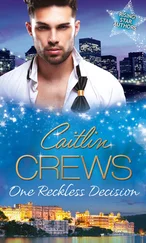Then the first pandemic had broken that rhythm, and the second pandemic had killed it. The idea that what was going on in the world would have nothing to do with what you did in the world had seemed totally natural until he was twelve. Six years later, it was such an obviously stupid idea that he couldn’t believe that whole civilizations had fallen for it for, like, centuries .
All of the panels he made at the factory had been headed for San Juan Capistrano, a city he’d visited in elementary school when they’d done a unit on the eighteenth-century Missions of the Spanish conquistadors. The Surfliner was still running then, and his class had taken over a whole car. Now most of the Surfliner tracks had been dangerously undermined by years of storm swells. The last train had run five years before.
Suddenly, Wilmar stood bolt upright, the chair tipping backward into his mother’s succulents. He should go to San Juan Capistrano!
HIS MOM MADE A FUSS BUT HE COULD TELL SHE WAS GLAD TO SEE HIM GO. HE FOUNDa bike and rode it to the Burbank Airport station just in time to hop a train to Union Station, and used the short trip to swipe through a lot more Friendster profiles, these ones all for SJC. The system found him a ton of friends-of-a-friend, and by the time he got to Union Station, he’d found a FOAF sofa for two nights and had a FOAF dinner date. He changed trains and an hour later, he was pulling into SJC and the dinner date had turned into a dinner party in a new park in the New SJC.
He found a bike and clipped his phone to the handlebars and let it map him to the park.
It was getting on rush hour and there were tons of bikes in the bike lanes, and full buses passed him in the bus lane. Even this far inland, SJC’s air smelled of sea salt, and lots of the apartment balconies had wetsuits and surfboards on them. The route to the new park was uphill all the way, of course. Everything in new SJC was uphill, because going inland was good, but high ground was better.
The park was in the shadow of a grid of huge turbines that thrummed overhead and creaked as they tuned themselves so that each one fed its slipstream to the one behind it, maximizing efficiency. He ditched the bike against a rack and flipped Friendster into friendfinder mode and let it guide him to a group of people his age with blankets and frisbees and deep tans and scratched knuckles.
“Hey,” he said. “I’m Wilmar?”
They shouted a flurry of hellos and someone handed him a beer and someone else gave him a tamale from a thermos steamer. He tossed it from hand to hand until it cooled off, then unwrapped it and accepted a dollop of habanero sauce.
There were a dozen people when he arrived, but more trickled in, and he was given a fresh orange, half an avocado (and a compostable spoon), hard kombucha, and a cup of gazpacho. He played frisbee, talked Burbank politics, talked national politics, collected tips on the best coffee and baked goods in newtown and old SJC, and even saw a swallow.
“We’re putting nesting cavities in every building,” Treesa said. She looked younger than Wilmar but she said she was working on the newtown buildout so he figured she had to be older than she looked—the Jobs Guarantee wouldn’t give heavy industry gigs to people until they were eighteen. She had gone to summer surfing camp with a guy who’d been on Wilmar’s swim team and had a first cousin who worked at the gym where Wilmar’s dad went for physio. These connections didn’t make for much conversation beyond the openers, but the openers were all they needed. She was funny and smart, and she knew every single thing about the newtown.
“No one knows where their migration patterns’ll be in a decade or two, but there’s a prof at UC Riverside who thinks that if we provide them with habitats and food there’s a good chance that they’ll keep this as their terminus.”
“Are you studying zoology?” Wilmar asked.
“Maybe,” she said. “I got my AP biology, but I’m taking a couple years off for this—” She waved her arm at the mid-rises around them, the streetcar and bus tracks, the park. “My family’s been in San Juan Capistrano since the Mission days. My umpty-great grandpa was a bricklayer, and when I was a kid my dad used to point out all the buildings he helped with. Doing this—” another expansive gesture—“it feels right.”
“That’s incredible,” he said. He cracked another hard kombucha. It was sour and tart, and someone told him it was 7 percent, which explained how lightheaded he was. “Working in Mojave, I’d watch the slabs pile up on the loading docks, watch them head out on the freighters, and I’d wonder about the people on the other end.”
“Did you ever put notes on them?”
“Notes?”
“In marker,” she said. “That permanent greasepen? We get a lot of slabs with notes on ’em, I see them sometimes when I’m priming the slabs after they’re in place. I’ve got a whole gallery of them.” He leaned in close to see the screen she spread out, swiped through her pictures: “THIS SIDE UP” and “HELL OR HIGH WATER” and then political slogans “UWAYNI FOR A THIRD TERM” and “HART’S A TOOL.”
“There was so much election stuff, it was crazy,” she said, finding him more.
“I had no idea,” he said. “Maybe we don’t do that in Mojave—maybe it’s just the other factories?” He knew of at least ten that served the San Juan Capistrano project, in an arc that went south to San Diego and north to Nevada. Mojave was the closest one to home, so he’d gone for it, thinking that he could shuttle back and forth. Why had he thought that would be good?
“Treesa!” They both looked around to see who was calling, and then Treesa’s hands tightened on the screen, scrunching it. It was an older woman, hair under a kerchief and dirty clothes, heading their way across the park. She looked homeless, but did they really have homeless people in San Juan Capistrano? What about the housing guarantee?
“Hi, Auntie Lanelle,” Treesa said, rising to intercept the woman before she could reach them. Wilmar tried not to stare as they started talking in low tones.
But then the woman started crying and Treesa hugged her and patted her back, and that only made her sob louder. Wilmar decided he should help.
“Can I do something?”
Treesa glared at him for a moment, then softened. “It’s OK,” she said. The woman loosened her grip on Treesa, dug a dirty face-scarf out of a pocket and wiped her eyes and blew her nose.
“Hello,” she said. “Are you a friend of Treesa’s? I’m her great aunt, Lanelle Carter.” Her voice was thin and cracked. She held out her hand, and Wilmar made himself shake it, and immediately got that “need-hand-san” feeling on that hand, the subconscious need to keep from touching anything else. He noticed the feeling and was mildly ashamed: he could tell himself that it was just normal pathogen prudence, but he knew deep down that he was recoiling at her broken-ness, her living proof of social failure.
“It’s nice to meet you, Ms Carter. I’m Wilmar Nazarian. I’m visiting from Burbank.”
“Oh,” she said, and got a faraway look. “We have people in Burbank. Did you know that, Treesa? My mother’s baby brother Norbert took his family there. We used to visit them for Fourth of July. Such wonderful fireworks.”
“How are you doing, Auntie?” Treesa asked. “Come and get a plate.”
None of Treesa’s friends wanted to hang out with her homeless great-aunt either, so they formed a little island on a picnic blanket, with a wide, empty space all around them. “Are we socially distancing again?” Treesa’s auntie asked vaguely.
“No, Auntie,” Treesa said, giving her a handful of freeze-dried apple chips.
Читать дальше
